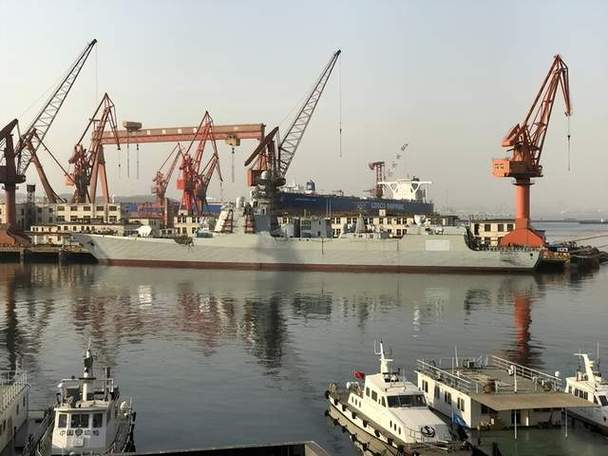
Recently, US President Joe Biden announced that he would launch an anti-subsidy investigation against China's shipbuilding industry according to Section 301, which is another move against China after chip sanctions and auto sanctions. In response, China directly canceled a total of 500,000 tons of US wheat orders, directly using the United States to counter the United States, such a high amount of "withdrawal", a new high since 1999 by the United States Department of Agriculture.
Why did China just cancel the wheat order from the US? On the one hand, under the premise that the United States continues to "contain China's development" as the main theme, the United States has frequently launched difficulties against China, and Sino-US trade is unlikely to be unaffected. Therefore, in order to avoid the United States to "weaponize" food as a tool to sanction China. China has responded with strong countermeasures to resolutely defend its interests. Moreover, this is also an important reflection of China's flexibility strategy under the import strategy of diversification from the market.
The other is the price effect. Given the many options available to countries that currently export wheat, it is natural for China to choose better and cheaper sources to buy. It is not hard to understand why China has canceled orders for wheat from the United States, which is experiencing difficulties in shipping due to the slowdown of shipping through the Panama Canal. Compared with Europe and Russia, the price of wheat from the United States is not only higher, but also higher.
Although the United States frequently claims that it does not seek to "decouple" from China, it is not doing so in practice. The US State Department website released a budget plan report for the fiscal year 2025, according to the content of the report, US President Biden will apply to Congress for a special "competition with China" mandatory spending, the budget of up to 4 billion US dollars. It is reported that the huge amount of $4 billion will be used to invest in the Indo-Pacific region and international infrastructure to achieve the purpose of "surpassing China" and "changing the rules of the game." In a recent investigation into the shipbuilding industry, five major trade unions in the United States issued a 126-page petition accusing China of providing preferential policies such as loans and taxes to its shipbuilding industry, which not only impacts the relevant U.S. industries, but also threatens the "national security" of the United States. To that end, they asked Mr. Biden to open a trade investigation into China's shipbuilding industry. Us Trade Representative Mary Dedge announced that a decision would be made within 45 days on whether to launch an investigation into Chinese companies under Section 301. The intention of the United States is to try to limit the development of China's shipbuilding industry, so as to protect its own position and interests in the global shipbuilding market.
Earlier this year, the Pentagon released its first National Defense Industrial Strategy, which noted that America's advantage in "fast, large-scale" production capabilities is shrinking, in part because of its arch-rival, China. In shipbuilding, China is the only country in the world capable of building all 18 major ship types. China accounted for more than half of the world's commercial shipbuilding production last year, while Europe accounted for only 5 percent and the United States contributed almost nothing. While the U.S. shipbuilding industry has been in rapid decline since the Reagan administration eliminated commercial shipbuilding subsidies in 1981, China has the world's largest market share and completed more ships last year than the rest of the world combined. Shipbuilding capacity is very important for a country, related to the improvement of national defense capabilities. China's rapid rise in shipbuilding in recent years has made the United States feel its share of the global shipbuilding market is under threat. Therefore, to limit the development of China's shipbuilding industry through anti-subsidy investigations and other means has become a possible strategy for the United States.
In short, the game between China and the United States in the field of trade and science and technology has become increasingly fierce recently, and both sides are engaged in fierce competition for their own interests and status. In this process, China needs to keep a clear head and strategic focus, and resolutely safeguard its own interests while promoting global trade and science and technology cooperation in a more open, inclusive and win-win direction.

According to Bloomberg, a recent in-depth interview with Michael Dehal, senior portfolio manager at Raymond James' Dehal Investment Partnership, was released, focusing on the economic development prospects and potential risks of Canada and the United States in 2026.
According to Bloomberg, a recent in-depth interview with Mi…
TikTok Shop, the global e-commerce platform under ByteDance…
As a severe flu outbreak sweeps across the United States, w…
Recently, US Treasury Secretary Mnuchin publicly stated tha…
At the dawn of 2026, the United States launched a military …
From the stiff step when it first debuted in 2022 to demons…